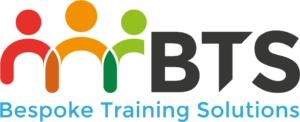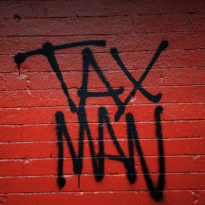Natalie Dawes, candidate support & business development adviser, takes trip though the CII J papers and what they entail and warns not underestimate them.
I’m going to be honest here, before I joined BTS, I didn’t have a Scooby Doo what the J papers were. Due to the nature of my role, it’s only natural that I’ve become somewhat familiar with the various units and qualifications available through the CII.
So, what are the J exams?
They’re a suite of Level 4 exam units, that cover various, quite niche areas of financial planning.
The J papers can be used towards Chartered and many candidates sit them for this reason. It should be noted though, that this doesn’t mean you can escape the level 6 papers (AFs), so the J papers are most def not a shortcut.
What they do offer, whether you’re using them towards Chartered or not, is an opportunity to deepen your knowledge within specific areas. You will have covered these areas within your R0s but here, you’ll zoom in.
Exam support
BTS are well known for supporting the R0s and actually I’d say we are now quite well established when it comes to the AFs. Given that the J papers are absolutely a piece of the Chartered jigsaw puzzle, and that we are talking to more and more candidates that want to focus on specific areas, it seemed only natural for BTS to look at providing support for these papers.
Let’s do a bit of a deep dive into the units we currently support and the ones that are in design and coming soon…
J05 – Pension Income Options (Supported by BTS)
This unit focusses on developing knowledge and understanding of pension crystallisation and the drawing of income via the various options available. It is a 2-hour exam, with 15 questions, requiring short written answers. With no heads up on what questions you might be asked, knowledge has to be on point across the board and lots of practise questions will be needed.
Something that stands out like a sore thumb with this unit, is that it carries 130 marks and you have 120 minutes to achieve them in. I also looked at the question stems and noted that the majority of the questions were really wordy. Therefore, a good approach with time management, comprehension and question interpretation will need to be factored into prep.
On the plus side, with this being a written exam, you can hone your technique really well and you can use past papers to explore examiner’s feedback – which will give you an idea of where candidates have previously fallen down. So as much as you are faced with a lot in this exam, there’s also a lot you can do to prepare.
J12 – Securities and Advice Dealing (Supported by BTS)
You’ll develop your knowledge and understanding of different securities, the securities market and consider appropriate investment recommendations. You could say that this is an appropriate next step from R02, or if you particularly liked R02, you’ll likely get on well with J12.
Like R02, J12 is also a multiple-choice question (MCQ) paper but there is a difference. Within your two-hour sitting, you’ll be faced with 60 MCQs and a further 15 MCQs across three case studies. All questions are the standard MCQ – so no multi-response answers, which will likely be welcomed by some candidates.
The case studies are pretty short in how much there is to read but with all three you’ll likely be faced with quite a bit of data to compare across a couple of portfolios or client circumstances – so be prepared for that!
J02 – Trusts (Coming soon from BTS)
I absolutely love a trust (is that weird?!) and at the time of writing this article, the BTS J02 Study Guide was almost ready to launch. I might look to do this one myself in the Autumn, so I’m looking forward to getting my teeth into the resources.
What can you expect with this exam? Well, you’ll be knee deep in all things trust related so expect the obvious but also think outside of that trust box. Think law, bankruptcy, Wills, executorship, life policies…and much, much more.
Definitely don’t head into this one thinking ‘it’s only Trusts’ because the syllabus is broad, as are the breadth of questions the examiner could throw come exam day.
The structure of this exam is the same as J05, so 15 questions requiring short written answers and the paper carries 130 marks, to be achieved in two hours. Again, you can use past papers for practise and to look at the examiner’s feedback.
J10 – Discretionary Investment Management (Coming soon from BTS)
This J paper will walk you through the role of a Discretionary Investment Manager, delving into analysis and portfolio management. There’s some cross-over again with R02, so the same applies to this unit as J12.
What about the structure of this exam? As with J12, it’s a MCQ paper but it has a difference. You’ll have 70 standard MCQs, followed by four case studies, each comprising five multi response MCQs. The same applies to time, with two hours to nail the 90 questions in total.
Time management, doesn’t appear to be an issue here but those multi response questions could be the thing to catch you out. Or…could it be the 15 learning outcomes (15!!) that the syllabus spans? There is a lot to cover in J10, that is for sure!
This unit is on BTS’ design radar, so do keep an eye/ear out for updates on this.
So…whaaaat do we think about the J papers?
They definitely have their place. The J papers make a great choice for those who want to deepen their knowledge within specific areas and as we have seen, they also offer choice around the type of assessment.
The MCQ papers can be sat any time of the year, so they make great units to consider between sitting written papers, more so if you’re looking to reach Chartered. Both J05 and J02, being written papers can only be sat twice per year, usually Feb/March time and then later in the year in September.
Are they easy? They are certainly not to be underestimated. Being niche units, the examiner is going to get really specific in their questions. This is a step up from the R0 papers, which although would have covered some of the content, would have done so in a much lighter way. It’s also worth mentioning that the J papers, have guideline study hours of between 70 and 100 hours, which is a considerable jump from the R0s.
The good news with the step up though, is that the J papers will give you a lovely 20 credits towards Chartered, not to mention a lot more expertise in the area of knowledge.
My final point to mention, more so because of the amount of hours these papers may require, is the idea of ‘double bubbling’. This is where you study more than one unit at the same time, where they have cross over of content.
Here’s a handy list of the papers that go well together:
J05: AF7 (and perhaps AF8)
J12: AF4
J02: AF1
J10: AF4
This approach isn’t for everyone, myself included there. I am far more focused when I’m only working on just one study guide and one exam sitting. However, for those of you who are far better at multi-tasking than I am when it comes to study and you’re looking to reach Chartered relatively quickly, this could absolutely help to get you where you want to be.
Our reasons to take on study, is such a personal thing. Without a shadow of a doubt though, whether you’re looking to gain some extra credits, or increase your knowledge, the J papers have a place for us all. For me it’s the latter, improving my technical knowledge and of course supporting you to do the same – so I’ll definitely be looking at working towards these papers later in the year.
Bespoke Training Solutions have been supporting regulated exams for 20 years this year! Known as ‘the exam experts’ within the industry, BTS provide support for the CII regulated exams by way of study guides, e-learning resources, and workshops for the full R0 suite and many AF and J0 units.
Visit https://www.bespoketrainingsolutions.com and check out the brand-new Careers Zone for study plans, answers to exam FAQs and lots more to support your journey.






























